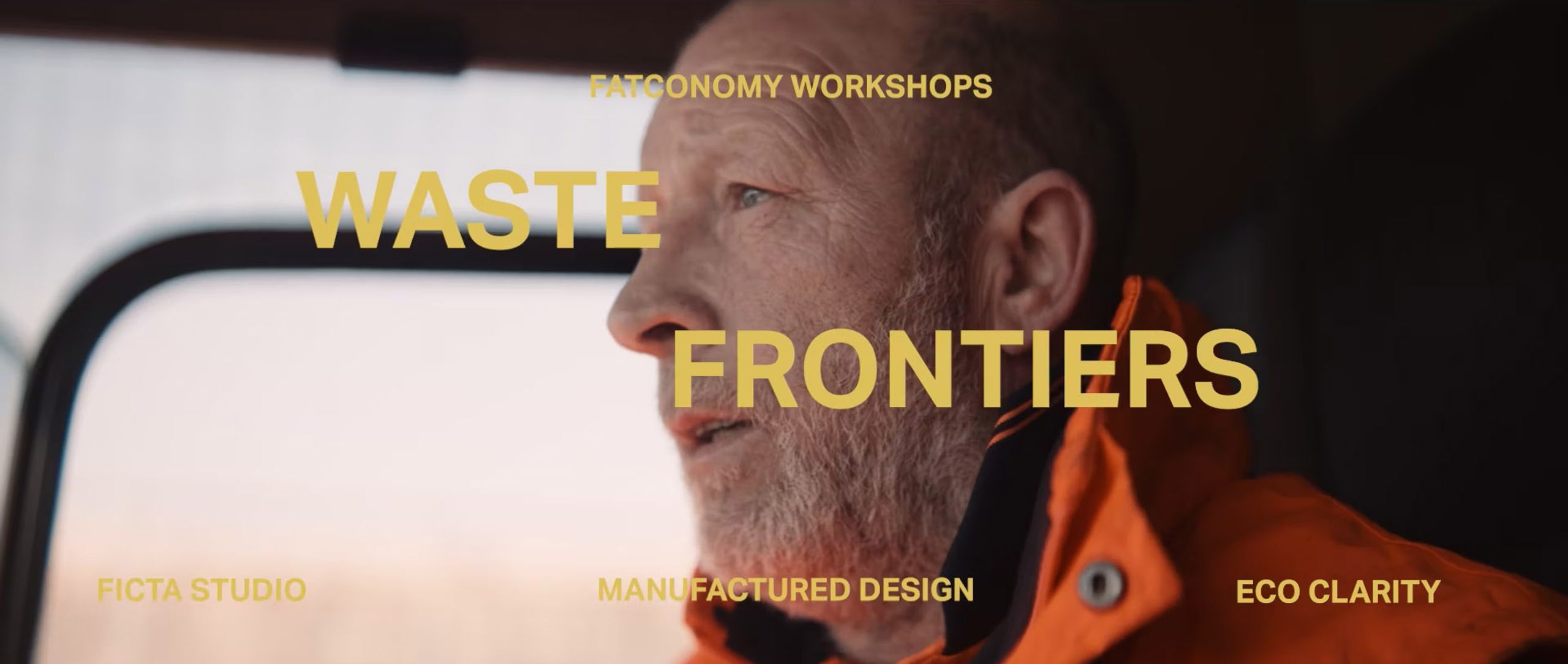Working with Christopher Clemes, CEO of Eco-Clarity and Laura Su, business and circular economy development lead. Fa(c)t was put into practice in a live scenario workshop and to conclude with a creative waste legislation building framework.
Building on earlier interventions such as Seeking Matter and performance based design research activations with St.Joseph’s College, Fatconomy presented Negotiations of Wasted Matter—an immersive workshop and experimental short documentary developed in collaboration with Eco-Clarity. This next phase of the project activated Fa(c)t within a live, plausible material scenario—positioned as a functional and conceptual tool inside a smaller-scale, independent biofuel feedstock lab.
Fa(c)t is a modular fat trap taken into a new context to help smaller factories create partnerships with local restaurants and waste water networks, speculate on new material creations, and detect non-sustainable waste types, such as imported palm waste disguised as waste oils and fats.
The workshop invited principal waste investigator Stephen Williams from Southern water, and United Utilities, senior network and policy advisor Andy Peet, long with Eco-Clarity’s Operational manager Bogdan Bujor, Site manager Daniel Hodgson, and business lead Laura Su and Serious waste hauler - Rob Smith to Eco-clarity’s site in Stockport, to partake in a world where fat traps have become advisors and partners on new waste code interventions.
Three building blocks were developed for the immersive scenario with Eco-Clarity:
1. Engaging Collaborative Networks: Facilitate collaboration, interaction, and negotiation between two distinct but interconnected systems—the wastewater network and the waste fats and oils network—to shape future FOG (fats, oils, and grease) policy.
2. Embedding Future Use of Fa(c)t: Integrate the envisioned future applications of fa(c)t within Eco-Clarity’s present-day trading tour, enabling collective exploration and identification of who and what fa(c)t can protect and explore.
3. Enhancing the Fa(c)t System and speculate on new legislation: Jointly expand upon the existing fa(c)t system through collaborative development of new FOG legislation and the integration of machine learning applications. FOG waste is under no proper legislative behaviour (For England).
Negotiations of wasted matter worked with Eco-Clarity to foreground upstream innovation needs and identify friction points within the complex wastewater network. Inspired by Bruno Latour’s concept of giving non-human entities a voice, this approach positions fats, oils, and grease (FOG) and wastewater away from numeric categories within the waste code user guide, but as active, value-bearing agents within policy and infrastructural dialogues. Salvaging FOG from sewers, diverting it away from wastewater, remains a problematic hurdle for Eco-Clarity, while wastewater networks continually grapple with blockages caused by FOG inundating aging pipe infrastructure. Current legislation separates wastewater and FOG waste codes, despite fats and oils frequently traversing sewer systems, leading to a highly reactive and fragmented management approach—salvaging FOG waste predominantly in response to severe blockages.



